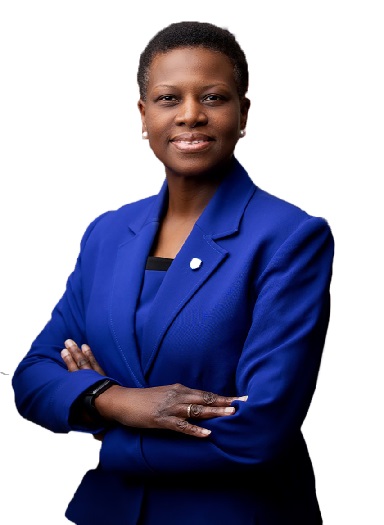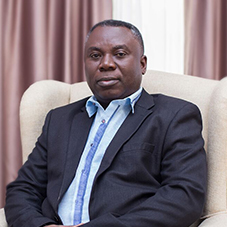At a time when the rest of the world is re-thinking its approach to commercial agriculture, Africa has a clear opportunity to refresh its approach to the sector and become an emerging force. Big shifts are already happening in food production, land and water use, and the integration of agri-tech and product tracing. If African firms take an early lead during this transition, they will be well placed to compete globally by building enduring assets and commercial advantages beyond primary production.
The financing of new investments in agriculture has always relied on a healthy financial eco-system: active banks, sound insurers and lively futures markets. The next set of gains will come from new platforms that allow small and large firms to connect to each other and to their shared stakeholders. Reciprocal exchange of market data will make smaller, efficient players more visible to large buyers.
“Without continued advances in agricultural productivity, the whole project of African advancement is at risk,” according to Linda Manda, Sector Head Agribusiness, Corporate and Investment Banking at Standard Bank. “The stakes are high for all of us”, says Ms Manda, “because communities in Africa rely on the agriculture industry for much more than food: employment, investment and infrastructure development are all part of the deal.” Over half (52%) of all people in Sub-Saharan Africa are employed in agriculture (2019).
Three recent developments: Higher value incentives
Three recent development milestones suggest that African firms are ready to move beyond low-margin primary production while remaining active in agriculture. According to Sola David-Borha, Chief Executive of Africa regions at Standard Bank, “‘higher-value economic activity is even more likely if finance, technology and trade move deeper into African agriculture. Larger and more open markets, strong supplier networks and technology investments will drive Africa’s growth.”
Trade data, and Standard Bank’s own long experience of trade finance, shows that Africa has been a net importer of food for almost two decades although the trade deficit has narrowed recently. Despite impressive export growth of certain key products, other food imports continue to rise. The covid-induced disruption to imports are a reminder that regional resilience in food supply is a practical imperative, not an intangible aspiration.
A larger, more open, internal market in SSA
First, the African Continental Free Trade Area (AfCFTA) should create a much larger internal market that gives producers access to a larger and more open market. Local production can better compete with the current import-and-distribute model. Large-scale production will arise when the returns are not stifled by trade friction. As an African bank, Standard Bank’s role is to put our strong balance sheet to work, lending to the new crop of agri-entrepreneurs.
Multinationals are already active cross-border distributors, but we expect new African producers to be attracted to the intra-African produce-to-trade and value addition opportunity. Africa also needs to be ready for the next disruption in trade. Some global imports will always be required but it would be wise to ensure that key inputs can also be sourced regionally.
Fading distinctions between suppliers
Second, the contrived distinction between the produce of small-holder farmers and very large commercial producers is beginning to fade. The new financial platforms being offered by Standard Bank will confirm the extent which large and small farming operations can complement one another. Out-grower programmes offered by large global firms allow smallholders to establish themselves as suppliers to the biggest and most profitable value chains. Tobacco, sugar and sorghum are all good case studies. Our banking platform is a place where buyers can meet producers, surrounded by market data on inputs, crop prices, volumes, regulations, trade advice and currency movements.
From the top of a tall grain silo, the neat polygons of monocrop plantations appear to be the only advanced outposts of progress. By contrast, small-holder farmland can seem rough and rudimentary remnants of a pre-industrial age. Our own experience is quite different. Smallholder farmers that have access to the right platforms and better yields are also able to compete on quality and cost. Local knowledge of weather, grains, indigenous varieties, insects, and soil has accumulated over many years in Africa and is becoming a treasure of indigenous competence and resourcefulness. The huge expansion of biological patents attests to the large commercial value of small, local insights.
Adoption of technology and optimisation logistics
The third recent milestone is the broad acceptance across Africa that advances in technology are not peripheral to growth. Grudging acceptance has given way to enthusiastic adoption. Healthy livestock, fertile plantations, productive greenhouses and efficient cold chains all require technology partnerships to keep them productive and profitable. Two decades of smartphone penetration in rural communities has probably eased the transition from guesswork and speculation to data-driven decisions and GPS mapping.
To make the most of this milestone, every hectare of land, every seedling and every bag of fertiliser must be used optimally. On-farm losses and unreliable methods are simply unaffordable during health pandemics and economic recessions. Private investment in telecoms, machinery and pipelines will eventually work alongside publicly funded infrastructure: roads, rail and bulk water supplies. Policy reforms need to support more public-private partnerships that have shown they can build and maintain high-quality infrastructure assets.
Consumer demand for less waste and more conservation will support investments in new systems that supply micro-nutrients to digitally-mapped crops and livestock. Food-insecure communities in Africa can cheer this development as much as time-starved households in wealthy countries: a regular surplus of well-priced food is the best guarantee of the social stability in which economic growth can best be cultivated.
Standard Bank Group is the largest African bank by assets with a unique footprint across 20 African countries. Headquartered in Johannesburg, South Africa, we are listed on the Johannesburg Stock Exchange, with share code SBK, and the Namibian Stock Exchange, share code SNB. Standard Bank has a 156-year history in South Africa and started building a franchise outside southern Africa in the early 1990s.









